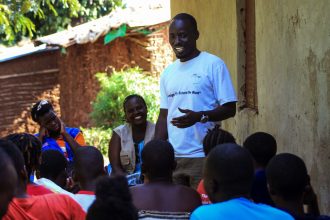On the opening day of ‘Summer Davos’ in Tianjin, Professor Ang Yeung Yeung of John Hopkins University, spoke about developing countries being presented with a false binary choice between the liberal west and China in a session looking at the future of the Belt and Road Initiative, responsible for many major building projects across African countries.
“The BRI is more than infrastructure; the infrastructural contributions are obvious, but infrastructure constructions also bring with it entire ecosystems of people and networks and I want to stress the role of ideas.
“The BRI can be for China an opportunity to advance an intellectual shift to an adaptive, experimental development. And to help put this in context, in global development, typically, evolving countries are presented with a false binary; either you choose the liberal western model or you choose the China model and this is presented as an either or… as an opposite.
“But I would argue that this is definitely a false binary because the reality of China’s own development is directed adaptation. And I would use a Chinese figurative term…. translated as something like ‘The Central government sets the stage or the platform, and local governments write the script’.
“It provides a figurative sense of the Chinese model of development. It is not simply top down central planning, it’s actually this directed adaptation and so when this is implemented globally, through the BRI, it’s not just about building roads…but it’s also really helping developing countries all around the world to embrace a much more adaptive model of development and that intellectual contribution is important. It’s roads, but it’s also about ideas and narratives and these things have to come together in an entire package.”
Social Impact Files
For the Changemakers





